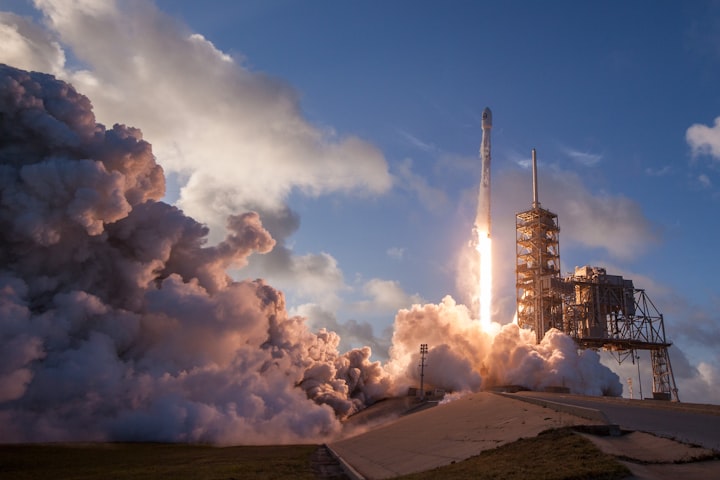Introduction
Rocket launches have propelled humanity into the realm of space exploration, but they also leave a significant environmental footprint. The growing frequency of space launches, along with the increasing scale and complexity of space missions, raises concerns about the ecological impact of these activities. This article explores the environmental consequences of rocket launches, from carbon emissions to space debris, and discusses the importance of sustainable practices to mitigate their impact on Earth's ecosystem.
Carbon Emissions: The Climate Footprint of Rocket Launches
Rocket launches release significant amounts of carbon dioxide (CO2) and other greenhouse gases into the atmosphere, contributing to climate change. The combustion of rocket propellants, particularly those using highly refined kerosene and liquid oxygen, results in the emission of CO2, water vapor, and other byproducts. The cumulative impact of these emissions from both government and private sector launches is a concern that must be addressed.
Stratospheric Ozone Depletion: Chemical Rocket Propellants
Certain rocket propellants, such as hydrazine, are known to contribute to stratospheric ozone depletion. These propellants contain chemicals that can react with ozone molecules, reducing the ozone layer's ability to protect Earth from harmful ultraviolet (UV) radiation. While the use of ozone-depleting propellants is being phased out, it remains essential to monitor and minimize their presence in rocket launches.
Space Debris: Unintended Consequences of Rocket Launches
Space debris, comprising defunct satellites, spent rocket stages, and other fragments, poses a significant threat to both space missions and Earth's environment. Collisions between space debris and operational satellites can lead to cascading effects, generating more debris and jeopardizing future space activities. Implementing sustainable practices, such as responsible satellite disposal and active debris removal, is crucial for preserving the space environment.
Noise Pollution: Impact on Wildlife and Ecosystems
Rocket launches generate high-intensity noise, which can disrupt local wildlife and ecosystems. The loud noise associated with launches can disturb nesting birds, marine mammals, and other sensitive species. Launch facilities situated near environmentally sensitive areas need to implement mitigation measures to minimize the impact of noise pollution on local wildlife.
Groundwater Contamination: Risks and Precautions
Rocket launch sites typically rely on large quantities of water for cooling and safety measures during launches. The use of hazardous chemicals, such as liquid propellant oxidizers and fuels, poses a potential risk of groundwater contamination if proper containment and management protocols are not followed. Implementing robust environmental monitoring and remediation practices can mitigate the risk of contamination and protect local water sources.
Sustainable Practices: Mitigating the Environmental Impact
To address the environmental impact of rocket launches, the space industry is adopting sustainable practices and exploring innovative solutions. These include the development of greener propellants, such as methane-based fuels, and the advancement of reusable rocket technologies to reduce launch costs and minimize waste. Additionally, increased international collaboration and data sharing can promote best practices for environmental stewardship throughout the space community.
Environmental Regulations and International Cooperation
Regulatory frameworks play a crucial role in managing the environmental impact of rocket launches. Governments and space agencies are implementing guidelines and standards to minimize carbon emissions, reduce space debris, and promote sustainable practices. International cooperation is essential to harmonize regulations and ensure the adoption of responsible environmental practices on a global scale.
Public Awareness and Education: Fostering Environmental Consciousness
Raising public awareness about the environmental impact of rocket launches is crucial for encouraging accountability and fostering sustainable practices within the space industry. Education and outreach initiatives can inform the public about the environmental challenges associated with space exploration and inspire support for eco-friendly technologies and policies.
Conclusion
Rocket launches have revolutionized space exploration, but their environmental impact cannot be ignored. The space industry must embrace sustainable practices, invest in green technologies, and prioritize environmental stewardship to minimize carbon emissions, reduce space debris, and protect Earth's ecosystems. Balancing exploration and ecological responsibility is essential as we continue our journey into the cosmos, ensuring a sustainable future both on Earth and in space.
About the Creator
Tatsuki
Space, Quantitative Finance, Crypto, Blockchain, Langurages, etc.
Personal Blog (Japanese): https://www.jinsei-100nenn.com/
AI Art Project: Space Cat AI (on Instagram)
Follow me:







Comments
There are no comments for this story
Be the first to respond and start the conversation.